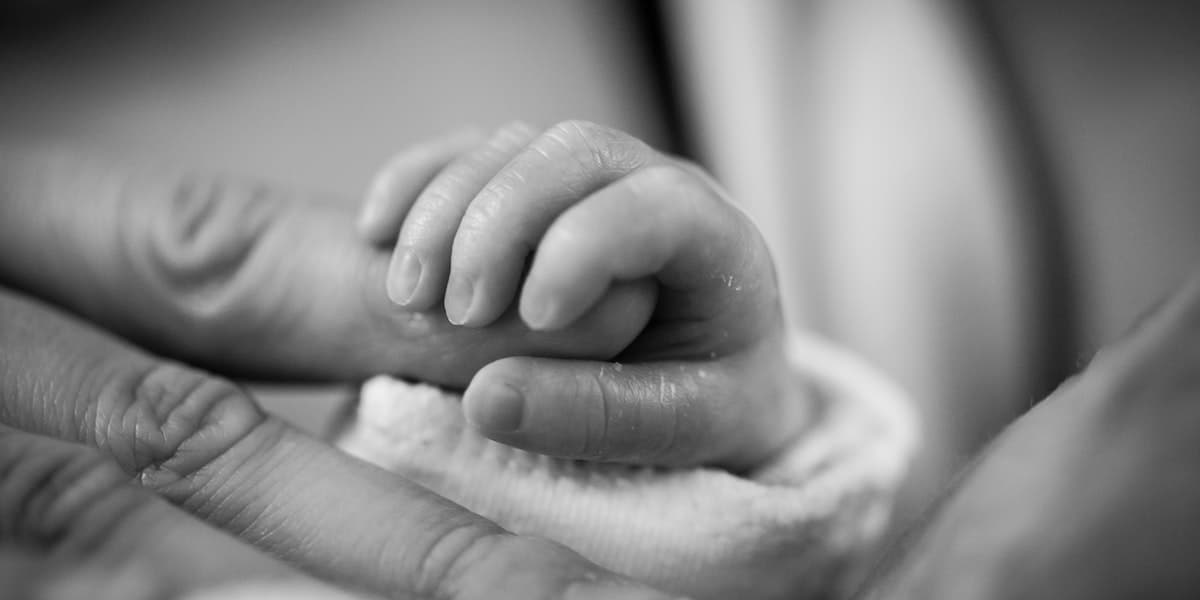It’s sometimes difficult to know when an expecting mother will give birth, but there are hints that contractions are on their way. Women have various experiences with pre-labor: some have strong indicators that labor is approaching, while others have none at all.
Things to watch out for include a clear-out (many bowel motions, diarrhea, and nausea), pains, emotional swings, and a sensation that you don’t want to leave the house.
While these signs don’t always indicate that you’re about to start having contractions, they could signal that your baby is on his way.
Fortunately, your body will use several pre-labor signs to alert you that the big day is approaching.
As an Amazon Associate, I earn from qualifying purchases. The links below may be affiliate links. Please read my disclosure policy for more information.
This article will guide you in spotting these signs, from the weird to false alarms and emergency signs. Learn everything there is to know about labor and have all of your questions answered here.
WHAT DOES ACTIVE LABOR VS EARLY LABOR FEEL LIKE?
Most women’s early cramps and niggles will progress to more intense feelings. Some women compare them to severe menstrual pains that develop worse, longer, and closer together over time.
There is no such thing as a “typical” route, and your experience may be quite different from that of your friends and family who have given birth.
While some women have a lot of symptoms leading up to active labor, others will only have a few. As a result, it’s very hard to characterize early or latent labor.
Regular, uncomfortable contractions and gradual cervical dilation from 4 cm are considered active labor.
Your obstetrician will ask about the number of contractions you are experiencing. However, there is no universally accepted definition of when active labor begins.
Your obstetrician will have to apply both their professional judgment and the policies of the hospital or birth center where you are giving birth.

DO YOU GET A STRANGE FEELING BEFORE YOU GO INTO LABOR?
We all know that pregnancy isn’t easy on the emotional front, so pay close attention to how you’re feeling in the later stages of pregnancy if you want to get a sense of when you might be ready to give birth.
Women may experience an emotional response when hormones rise in preparation for labor, which may express as tears, anger, or a general mood of sadness.
This is very natural, and with a little care, it can often be remedied. If you’re experiencing a persistent low mood, seek help from your maternity health care provider.
HOW CAN YOU TELL IF YOU’RE ON THE VERGE OF LABOR?
When your pregnancy is reaching its end, every pain, cramp, and hiccup can make you think you’re going to give birth.
And, with so much misinformation regarding labor signals readily available on the internet, it’s easy to become confused and panicked about what you’re going through.
Unless you have a scheduled C-section, your baby’s birth will most likely fall between two weeks before or after your due date.
Before labor begins, women may experience a few distinct symptoms. Some are evident, while others may go unnoticed! It’s difficult to predict what will happen because they’re all so different.
Because every woman and every pregnancy is unique, it’s impossible to predict when labor will start based on your background, family history, or instinct.
WHAT IS SILENT LABOR?
Silent labor is a phenomenon in which a woman does not realize she is in labor. It is not to be confused with silent or quiet birth, which is something encouraged by Scientology.
It doesn’t appear to be well-known, and it isn’t particularly frequent. Precipitate labor, on the other hand, is when a woman goes into labor and gives birth in a short period of time, usually two to three hours.
How do you know you’re having silent labor?
The truth is that you never know, but it’s quite unlikely that you’ll go into labor without notice. Your body will alert you that the big day is approaching, so make sure your hospital bag is packed and you’re ready to head to the hospital when the time comes.

WHAT ARE UNUSUAL LABOR SIGNS
There are several unique labor signs that are both rare and typical with most women, in addition to the regular signs that are common before labor. They include
- Shivering or trembling on a regular basis: A woman’s body can ‘shiver’ or ‘tremble’ as a result of a change in hormones from her brain signaling her body to go into labor. It is, however, fairly uncommon — and you should always have your doctor looked out just in case.
- You can’t seem to get to the bathroom: For a heavily pregnant woman, losing bladder control is quite natural. When the impulse to wee and the ability to get to the toilet do not coincide (i.e. you wee yourself on the way to the toilet), it is an indication that labor is approaching. The reason for this is that the baby’s head has dropped down into the lower pelvis, putting pressure on your bladder. The bladder can’t keep up with everything going on.
Check your vaginal discharge as well while you’re in the bathroom. It could also be an indication that you are in the early stages of labor if it seems somewhat pink.
- A puffy vagina: If you’ve ever witnessed a birth (or watched a YouTube video of one), you’ll note that the vaginal area isn’t generally that bloated. During the late stages of pregnancy, your labia can really ‘swell,’ and as the baby moves down and into the delivery position, it puts a lot more pressure on them, making them feel huge and swollen.
- The night before, you are very uncomfortable: Some women couldn’t sleep the night before labor, which is exactly when you need it. Late pregnancy is uncomfortable enough, but if you’re feeling abnormally restless, your legs won’t stop moving, and you can’t find a comfortable position, it’s a sign labor isn’t far away!
- Pets behave differently: It’s a popular belief that pets can sense when a baby is on the way and will adjust their behavior accordingly. A friendly pet may leave you unexpectedly, meanwhile, a pet who has been distant during pregnancy may be found continually by your side. It is a good idea to prepare your dog for the coming of the baby well in advance, to avoid the changes that occur once the baby arrives. Practice walking your dog with the stroller and getting them adjusted to less attention ahead of time.
SIGNS LABOR IS 24-48 HOURS AWAY
- Loss of weight
As a pregnant woman, you may not notice any weight loss until after the baby is born. However, it’s not uncommon for a woman to lose 1 to 3 pounds in the days leading up to her due date.
This isn’t, however, fat loss. Instead, your body is ridding itself of excess water. It can happen as your pregnancy progresses and your “baby drops” in preparation for labor, resulting in less amniotic fluid and greater urination.
When your baby moves to a lower position, it exerts more pressure on your bladder, causing you to go to the bathroom more frequently.
- Water breaking
Your water breaking, or more particularly, the rupture of your amniotic sac, is an evident indicator that labor has begun.
This fluid-filled sac protects your baby as it grows and develops, but it will rupture, either spontaneously or artificially, in preparation for delivery.
When your water breaks spontaneously, it’s most likely due to increased pressure on the sac from the baby’s head.
Although some women experience a flood of water, it isn’t always as dramatic as it appears on television. Some women simply notice a trickle of water or a moist feeling in their underwear.
- Extreme nesting
During the third trimester, many women experience the nesting urge, which is an overpowering desire to get the house ready for a baby.
You may begin cleaning, arranging, and setting up the nursery, ensuring that everything is in order. However, your body may go into panic mode 24 to 48 hours before birth, resulting in a burst of energy and an increased desire to clean and organize.
Some expectant mothers obsess over their hospital bag, reorganize their nursery, or vow to clean their house to the point of being dust-free.
- Cervical dilation
You’ll have weekly visits near the end of your pregnancy, during which your doctor will check your cervix to see how far it’s dilated.
The term “dilation” refers to the opening of the cervix to allow the baby to pass through the birth canal.
Although a cervix must dilate at least 10 centimeters for a vaginal delivery, cervical dilation of at least 2 to 3 centimeters frequently suggests that labor will begin in the next 24 to 48 hours.
- Low backache
Back pain is typical during pregnancy due to the natural relaxing of joints and ligaments in preparation for labor. While some aches are to be expected during pregnancy, pre-labor back discomfort is distinct and more unpleasant.
When labor is just 24 to 48 hours away, pain in the lower back may intensify and spread to the pelvis area. Changing positions does not bring relief, and the pain generally persists until after the baby is born.

IS DIARRHEA A SIGN OF LABOR COMING SOON?
Just before labor, our bodies want to get rid of anything in our bowels. Furthermore, emptying bowels provides greater space for the baby to move.
Oh, don’t worry – you’ll probably poop yourself during labor, but you won’t be able to give a single care at the time, and the nurses will wipe it up discreetly before you even notice.
Whatever you do, don’t take anything to force yourself to go to the bathroom before labor begins, no matter how scared you are about pooping during labor.
Going to the bathroom during labor and pooping while pushing your baby out is entirely natural.
IS SUDDEN EXHAUSTION BEFORE LABOR NORMAL?
The last few weeks of pregnancy can be a roller coaster. You may experience sudden tiredness if you aren’t bursting with energy and changing furniture or deep cleaning your refrigerator.
That’s a healthy indicator that your body is storing energy in preparation for the arduous task of labor.
3 SIGNS YOU MIGHT ASSUME INDICATE YOU’RE ABOUT TO GO INTO LABOR—BUT AREN’T
It’s common to put too much importance on indications that can occur a few weeks before labor, such as these, during this wait-and-see phase (when you’re so ready to issue your kid an eviction notice).
- You’ve lost your mucus plug, and it’s speckled with blood.
Your cervix may be dilating if you have vaginal bleeding or see lengthy strings of mucus (called your mucus plug) emerging from your vagina. Both of these things can happen a week or two before delivery, as your cervix opens up from completely closed to somewhat open.
Of course, your body must dislodge the mucus plug from your cervix in order to birth the baby. However, it isn’t necessarily a sure sign of labor. Consider it as your body preparing for the big show.
- Your baby dropped.
If this is your first child, the baby may “drop” in your uterus, causing vaginal pressure to rise. It occurs sometime before labor, although it does not initiate it.
- Your baby isn’t moving as much as he or she used to.
Even if those kicks to the ribs are excruciating, all pregnant women are aware of how much—or how little—their kid is moving in there. Less movement, on the other hand, is not a symptom of approaching labor.
As the baby lines up in labor, there’s a theory that they’ll start to slow down their movements. That is not something to consider to be normal.
Obstetricians, in fact, believe it is a worrying indicator. Call your doctor if you’re concerned that your baby isn’t moving around as much as usual.
The final month of pregnancy is a roller coaster of emotions. As you wait for your baby to arrive, you’re filled with both joy and anticipation.
Labor is highly unpredictable. However, if you pay attention to your body, you’ll notice that you’re just a day or two away from holding your bundle of joy.






